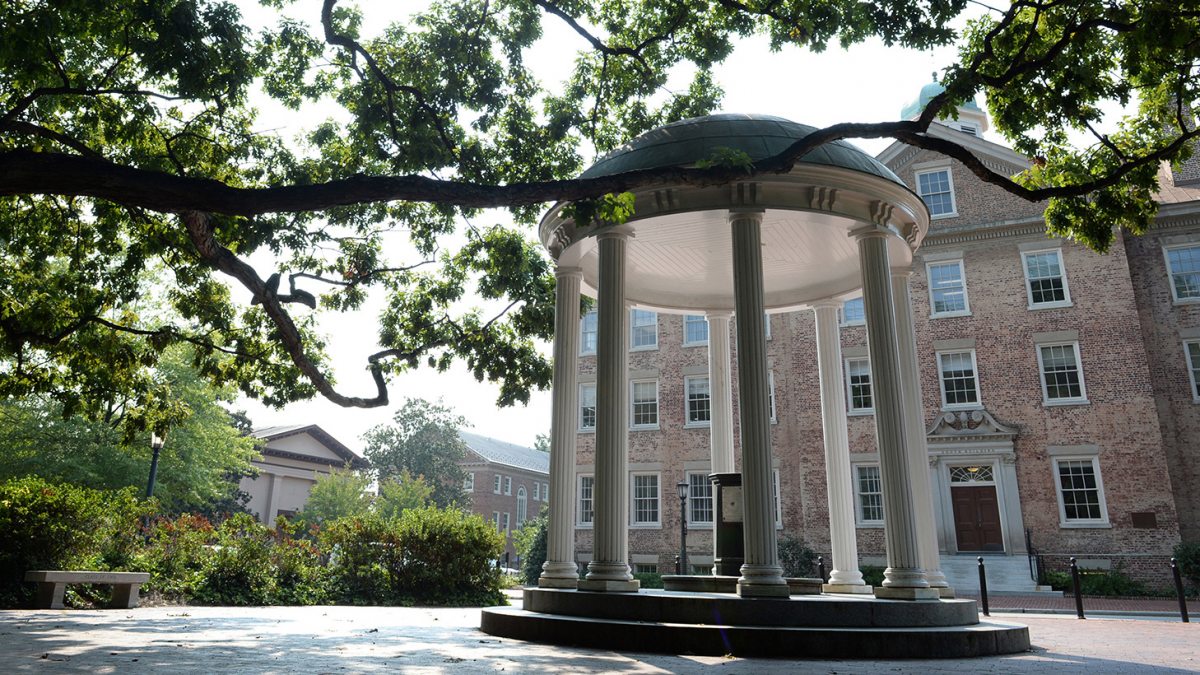Carolina to switch to remote instruction, reduce residential density
The University is shifting all undergraduate instruction to remote learning on Aug. 19. Courses in the graduate, professional and health affairs schools will continue to be taught as they are or as directed by the schools.

After a spate of COVID-19 infection clusters during the first week of classes, the University will shift all undergraduate instruction to remote learning Wednesday and continue efforts to greatly reduce residence hall occupancy.
“Since launching the Roadmap for Fall 2020, we have emphasized that if we were faced with the need to change plans — take an off-ramp — we would not hesitate to do so, but we have not taken this decision lightly. We have made it in consultation with state and local health officials, Carolina’s infectious disease experts and the UNC System,” wrote Chancellor Kevin M. Guskiewicz and Executive Vice Chancellor and Provost Robert A. Blouin in a Monday campus email announcing the changes.
UNC System President Peter Hans said: “There are no easy answers as the nation navigates through the pandemic. At this point we haven’t received any information that would lead to similar modifications at any of our other universities. Whether at Chapel Hill or another institution, students must continue to wear facial coverings and maintain social distancing, as their personal responsibility, particularly in off-campus settings, is critical to the success of this semester and to protect public health.”
Campus Health Services reported a significant rise in positive COVID-19 tests over the past week (Aug. 10-16). Currently, 177 students are in isolation and 349 are in quarantine, both on and off campus.
To mitigate continued community spread within residence halls and contain the virus, the University is working with the UNC System office to identify the most effective way to decrease residential density on campus. Students will have the opportunity to cancel housing requests with no penalty. Residents who have hardships, such as lack of access to reliable internet access, international students or student-athletes will have the option to remain on campus.
The University’s research enterprise will remain unchanged. Courses in the graduate, professional and health affairs schools will continue to be taught as they are or as directed by the schools. Academic advising and academic support services will be available online.
“We understand that these trends aren’t just affecting our campus: They have escalated the concerns of our neighbors, co-workers and friends in and around the Chapel Hill and Carrboro communities. The health and well-being of the good people of our greater Carolina community are just as important to us as that of our students, faculty and staff,” the campus message continued. “As much as we believe we have worked diligently to help create a healthy and safe campus living and learning environment, we believe the current data presents an untenable situation. As we have always said, the health and safety of our campus community are paramount, and we will continue to modify and adapt our plan when necessary.”




